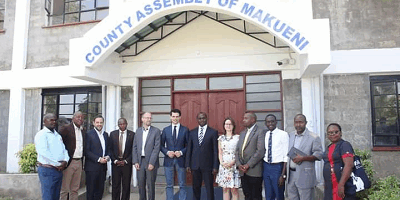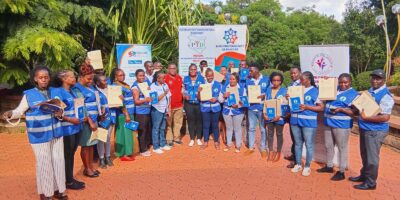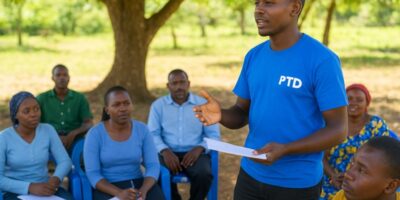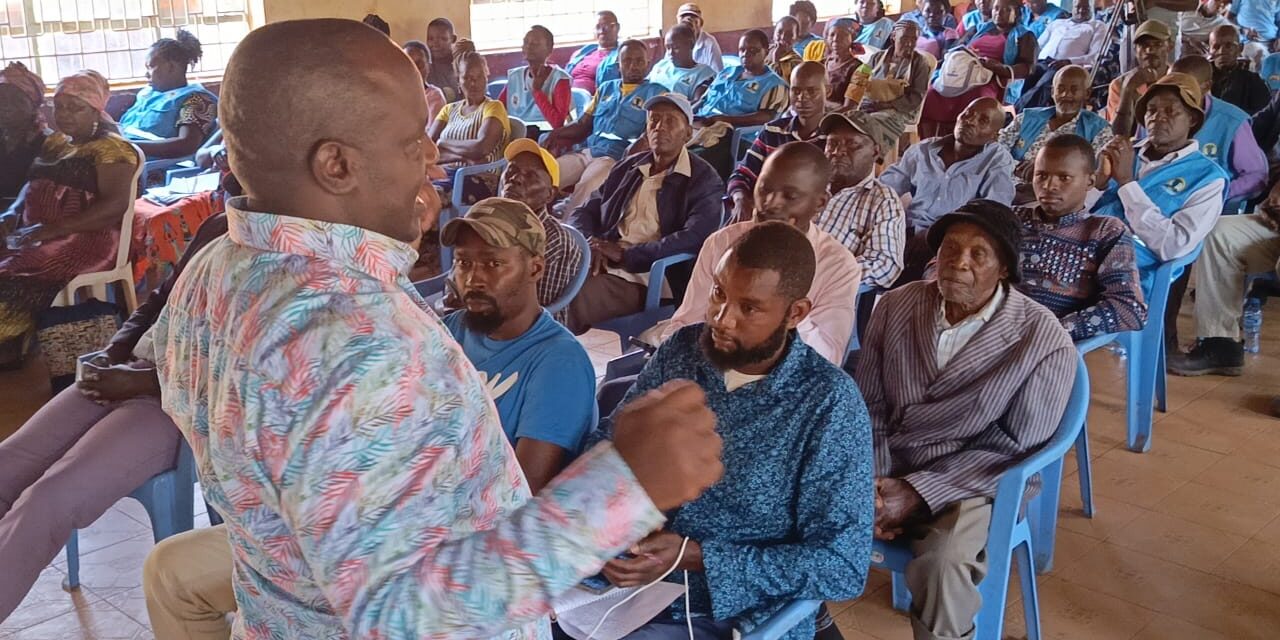Building an Empowered and Accountable Community in Makueni County
1. Background
PTD Kenya, in partnership with MACSON, The Institute for Social Accountability (TISA), and Transparency International Kenya (TI-Kenya), has been implementing activities under the Tupigane na Ufisadi (TUNU) Program aimed at strengthening civic participation, accountability, and transparency in governance at the grassroots level.
Through this initiative, PTD Kenya has focused on empowering communities in Kitise Kithuki Ward, Makueni County, to actively engage in public decision-making and demand good governance practices.
2. The Change Observed
Before PTD Kenya’s intervention, community members of Mikauni Village in Kitise Sub-Ward had limited understanding of their rights to participate in county planning and budgeting processes. Public participation forums were poorly attended, and residents often felt excluded or voiceless in decisions that shaped their development priorities.
After PTD Kenya’s targeted trainings and dialogue sessions under the TUNU Program, community members gained confidence and knowledge to participate meaningfully in public forums and hold their leaders accountable. They learned how to analyze county budgets, identify community needs, and present them effectively to decision-makers.
This empowerment led to collective advocacy that resulted in the prioritization of the Londokwe Mega Earth Dam (Kwa Ndwale) and Kwa Syoni Drift in Nzouni Village in the County Annual Development Plan. The community is now more organized, informed, and proactive in following up on project implementation.
Today, Kitise residents demonstrate a visible change in behavior, relationships, and governance engagement—from passive observers to active citizens shaping their development agenda.
3. Who Was Affected and How We Know the Change Is Real
The main beneficiaries were men, women, youth, and persons with disabilities from Mikauni Village, alongside local leaders including village elders, ward administrators, and county technical officers.
Evidence of real change emerged through multiple sources:
-
Increased community attendance and active participation in county public forums.
-
Formation of community accountability committees that track water infrastructure projects.
-
Official inclusion of the Londokwe Mega Earth Dam and Kwa Syoni Drift in county planning documents.
-
Positive testimonies from community members expressing newfound confidence and ownership.
-
Acknowledgment by county officials who recognized Mikauni as a model of organized civic participation.
These observable shifts in behavior, formal policy responses, and citizen feedback confirm that PTD Kenya’s interventions had a measurable and meaningful impact.
4. PTD Kenya’s Contribution to the Change
PTD Kenya’s approach focused on facilitating empowerment rather than imposing solutions. Under the TUNU Program, the organization contributed through:
-
Capacity-Building Workshops – Training communities on public participation, access to information, and social accountability tools.
-
Inclusive Community Dialogues – Creating spaces for constructive engagement between citizens and county officials.
-
Civic Education and Mentorship – Simplifying governance processes and guiding communities on how to influence county planning.
-
Coalition Building – Strengthening partnerships with local CBOs, village committees, and accountability champions for sustained advocacy.
-
Follow-Up and Feedback Mechanisms – Conducting regular field visits to monitor progress, document learning, and reinforce community action.
Through these actions, PTD Kenya catalyzed a shift in community mindset and leadership responsiveness, complementing the broader accountability efforts of MACSON, TISA Kenya, and TI-Kenya.
5. The Meaning and Learning Behind the Change
This experience reinforces a key lesson: when citizens are informed and empowered, they can drive sustainable governance reforms from the bottom up. The Kitise case illustrates that PTD Kenya’s strategy of capacity-building, relationship-building, and inclusive participation is highly effective in creating real, lasting impact.
The inclusion of the Londokwe Mega Earth Dam and Kwa Syoni Drift projects demonstrates that community voice, when well-organized and evidence-based, can directly influence government planning.
The deeper insight is that sustainable change is not only about service delivery—it is about trust, collaboration, and shared accountability between citizens and government. PTD Kenya’s facilitative and partnership-driven approach under the TUNU Program shows that anti-corruption and governance work can be both participatory and impactful.
Moving forward, PTD Kenya intends to scale this model to other wards within Makueni County and beyond, building on the momentum created through collaboration with MACSON, TISA Kenya, and TI-Kenya.
6. Conclusion
The story of Kitise Sub-Ward illustrates that empowered citizens are powerful agents of change. Through the joint efforts of PTD Kenya, MACSON, TISA Kenya, and TI-Kenya under the TUNU Program, communities that were once excluded are now actively shaping their development agenda, demanding transparency, and holding leaders accountable.
This transformation marks a significant milestone toward inclusive governance and strengthened community resilience against corruption—the very vision that the TUNU Program stands for.










